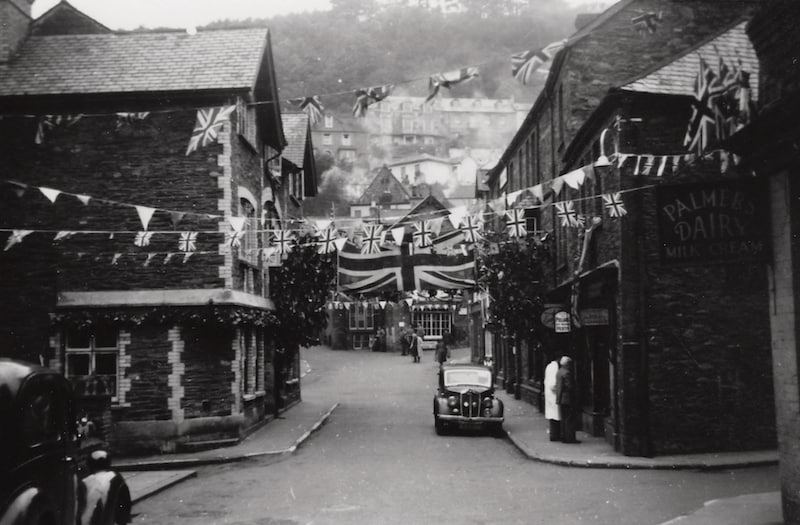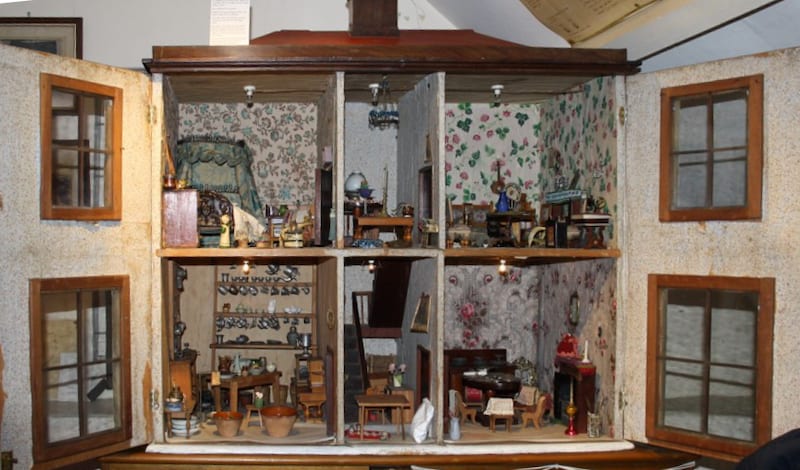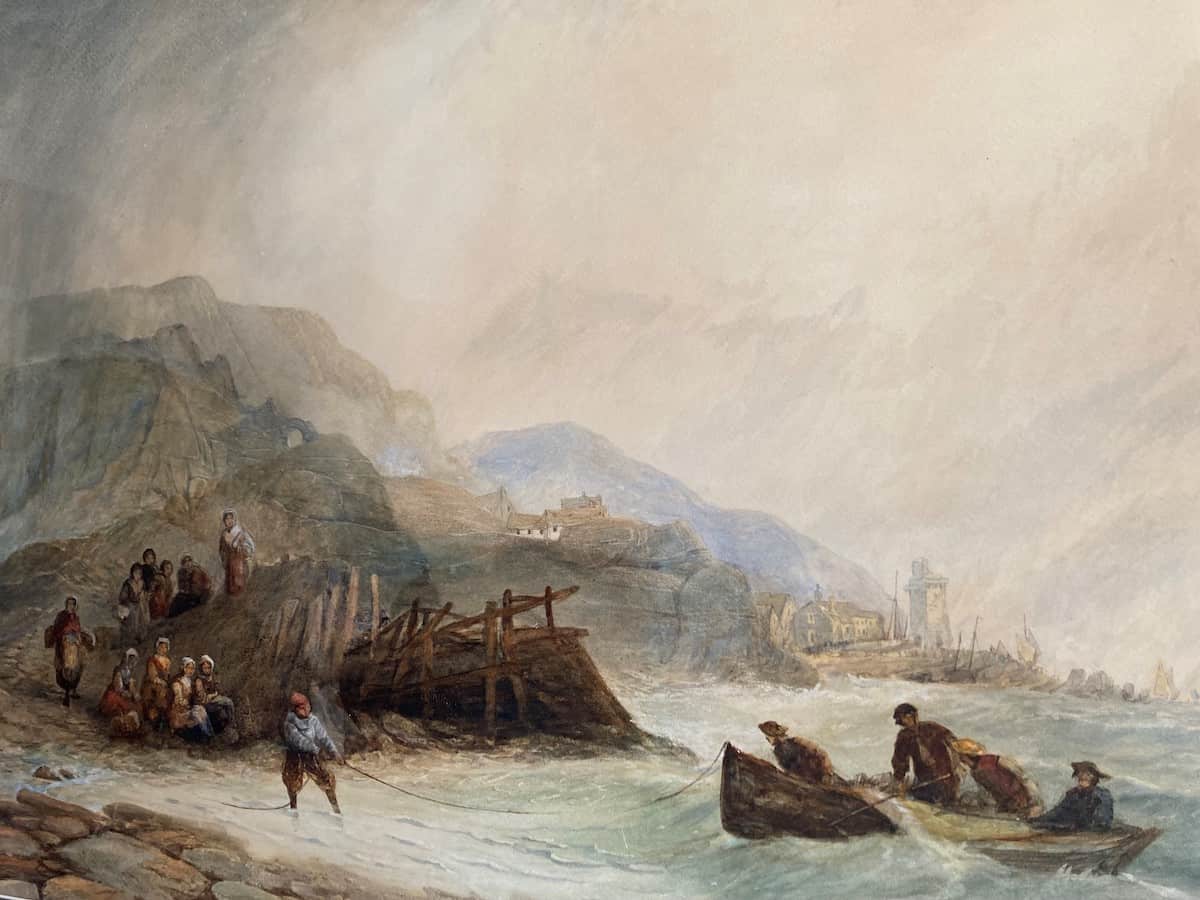A Lynmouth Heroine
The Story of Annie Lord
by Nicolas Lovell
Upstairs in the museum there’s a photograph, much foxed and spotted with age, of a slight young woman from the Victorian era. Beside the photograph is a medal and a certificate from the Royal Humane Society, recording her heroic rescue of someone who was drowning in Lynmouth Bay. Amazingly, twenty years after the award of this medal, she did almost exactly the same thing and then lived to 97 years age! Her name was Annie Lord.
Annie was born in 1853. At this time her father, John Lord, was working as a lime burner in Lynmouth but was also a fisherman who had gained a local reputation for bravery when he helped to rescue sailors from a ship foundering off Foreland Point.
The family lived at Kiln Cottages, near where the Cliff Valley Railway station is now situated. Tourism was developing in the two villages and a growing number of well-off people were making the difficult journey to enjoy the beauty of Little Switzerland and to take the waters of the area, not just by drinking the fresh water of the East and West Lyn (which was supposed to have health-giving properties) but also to bathe in the sea at Lynmouth.
For the sake of propriety, men and women were required to bathe from different parts of the beach: ladies in front of what is now the promenade and men across the other side of the Lyn. By the 1870s, John Lord and his family were in charge of the Ladies’ Beach (women entered the sea via bathing machines) and it seems he ensured that all his children were able to swim, which was very fortunate because on the morning of the 19th August 1871 an accident occurred.
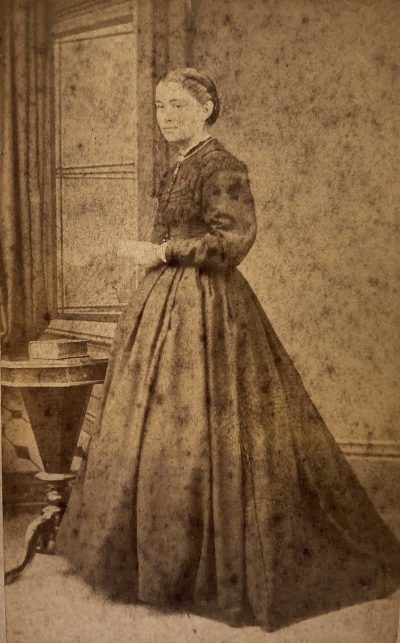
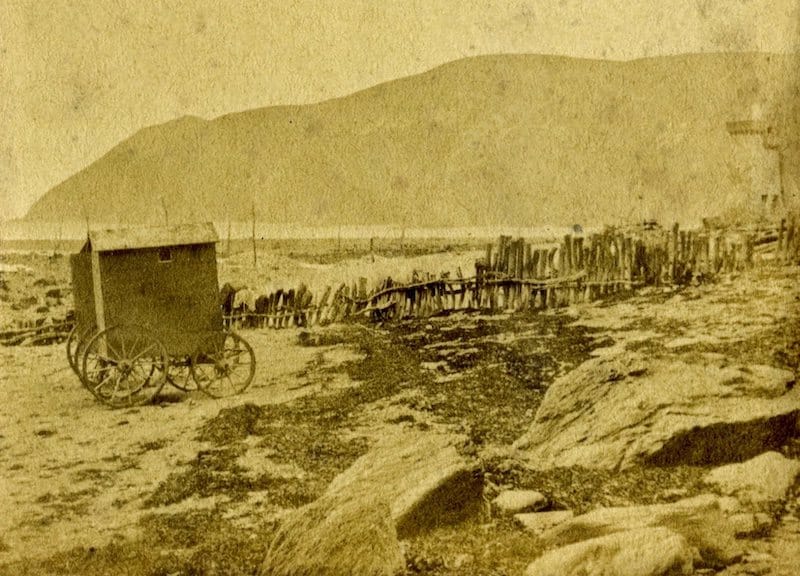
The Fremlins were wealthy brewers from Kent and three members of the family had travelled to the area, partly as a holiday for young Mr Fremlin and his wife but also to improve the health of his sister, Fanny, who had been suffering from a respiratory disease. At 10.00am the tide had just turned as the two Fremlin ladies bathed. As we know, the currents are strong in Lynmouth Bay and they were dragged out of their depth. The alarm was raised by the attendant on duty who could see the two ladies crying out for help and clinging to each other in desperation.
Annie Lord could hear the shouting from her family’s cottage and immediately rushed out and ran into the sea, stripping her clothes off as she went. Although small she was strong and she struck out towards the pair. Miss Fremlin had gone to the aid of her brother’s wife who had got into difficulty first and had then found herself in trouble. By the time Annie reached the swimmers, Mrs Fremlin was back in her depth, though in a dangerously shocked state; Fanny Fremlin, however, was clearly drowning. Annie knew what she was doing and the dangers of trying to help a panicking person in the water. She shouted at the young lady, warning that she should not cling onto her otherwise they would both drown. She then grabbed Miss Fremlin by the hair, pulled her round in the water and used all her strength as a swimmer to push the increasingly inert body in front of her.
By the time the young Fremlin ladies were brought to dry land they were both unconscious and close to death. They were very fortunate that a local coastguard, named William Johnson, who knew how to resuscitate half-drowned people, and a doctor were nearby at the time of the accident, so that over the course of several hours both women were miraculously brought back to consciousness.
Annie was given a financial reward for her bravery and received a bronze medal from the Royal Humane Society.
This medal is now held by the museum along with a collection of newspaper cuttings, letters and details of her other rescue.
She was a hardy and brave person who went on to live to a great age.
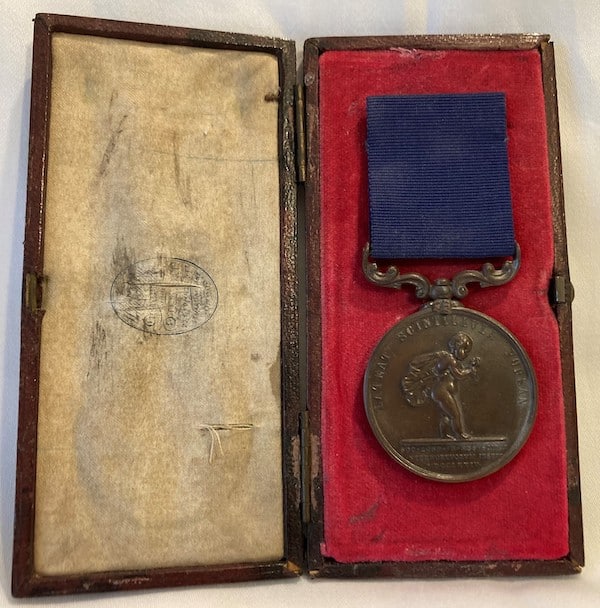
Nicholas Lovell
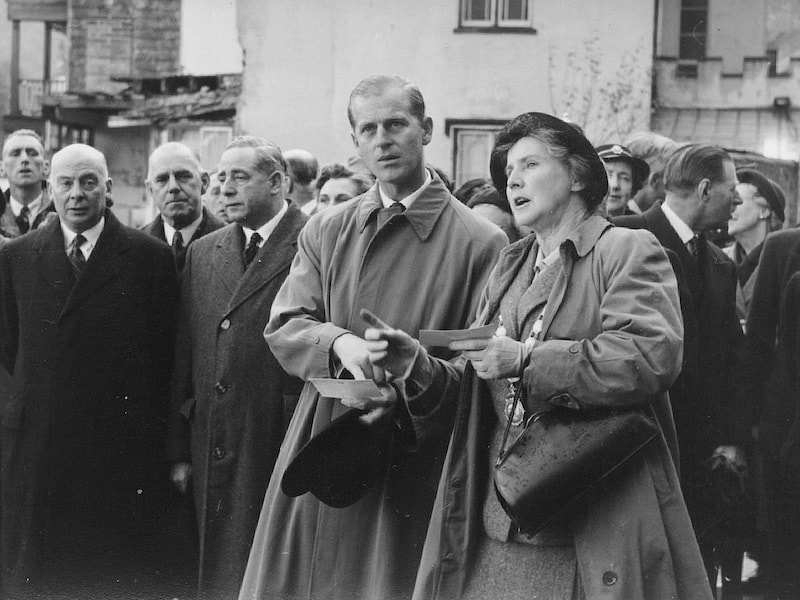
Visit the
Lyn & Exmoor Museum
Find out more about Lynton & Lynmouth’s rich and turbulent past.
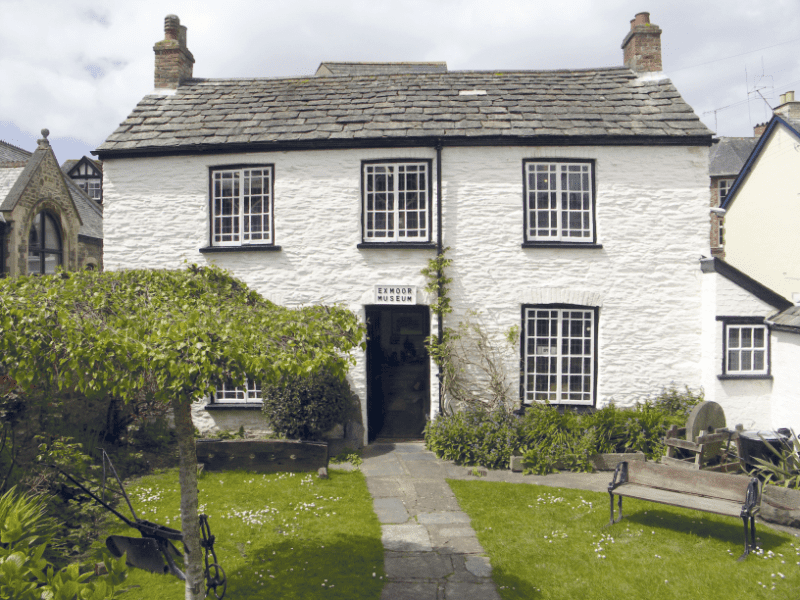
More Historic Reading
Lyn & Exmoor Museum – Past Coronations & Celebrations
The Lyn and Exmoor Museum explores the rich history of past coronations and celebrations, to celebrate King Charles III’s coronation.
Lyn & Exmoor Museum – The Treasure on our Doorstep
The Lyn and Exmoor Museum is a fascinating little place, stuffed to the brim with all kinds of interesting things
Ordinary Folk of Lynton & Lynmouth’s Past
Discover the untold stories of ordinary folk in Lynton and Lynmouth, their vibrant spirit, and their role in shaping this Victorian-era town.
The Lynmouth Flood
Lynmouth is surrounded by stunning natural beauty but in 1952 it also experienced the awesome destructive power of nature.
Lyn & Exmoor Museum – Annie Lord
The Lyn and Exmoor Museum recounts the tale of Annie Lord, born in 1853, and heralded as a true Lynmouth Heroine.
Lyn & Exmoor Museum turns 60!
The Lyn and Exmoor Museum in Lynton celebrates the 60th anniversary of the grand opening by Lord Roborough.

